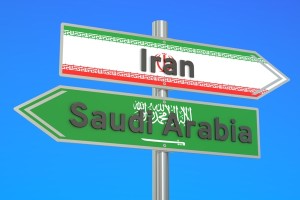Iran rejected on Tuesday an offer from Saudi Arabia to limit its oil output in exchange for Riyadh cutting supply, dashing market hopes the two major OPEC producers would find a compromise this week to help ease a global glut of crude.
“The gap (in views) between OPEC countries is narrowing. I don’t expect that an agreement will come out of the consultations tomorrow,” Saudi Energy Minister Khalid al-Falih told reporters.
Iranian Oil Minister Bijan Zanganeh said earlier: “It is not the time for decision-making.” Referring to the next formal OPEC meeting in Vienna on Nov. 30, he added: “We will try to reach agreement for November.”
The Organization of the Petroleum Exporting Countries will hold informal talks at 1400 GMT on Wednesday. Its members are also meeting non-OPEC producers on the sidelines of the International Energy Forum, which groups producers and consumers.
Oil prices LCOc1 have more than halved from 2014 levels due to oversupply, prompting OPEC producers and rival Russia to seek a market rebalancing that would boost revenues from oil exports and help their crippled budgets.
The predominant idea since early 2016 among producers has been to agree to freeze output levels, although market watchers have said such a move would fail to reduce unwanted barrels.
A deal has also been complicated by acute political rivalry between Iran and Saudi Arabia, which are fighting several proxy-wars in the Middle East, including in Syria and Yemen.
Sources told Reuters last week that Saudi Arabia had offered to reduce its output if Iran agreed to freeze production, a shift in Riyadh’s position as the kingdom had previously refused to discuss output cuts.

WHAT IRAN WANTS
On Tuesday, several OPEC delegates said the positions of Saudi Arabia and Iran remained too far apart. Oil prices were down more than 3 percent by 1802 GMT. [O/R]
“There is a move forward, but they (OPEC) haven’t got to the finish,” Russian Energy Minister Alexander Novak said after meeting Falih and Zanganeh. Novak and Falih said a deal was still possible later this year.
Three OPEC sources said Iran, whose production has stagnated at 3.6 million barrels per day, insisted on having the right to ramp up to around 4.1-4.2 million bpd, while OPEC Gulf members wanted its output to be frozen below 4 million.
Several OPEC sources said Iran effectively rejected the offer despite last-minute attempts by Russia, Algeria and Qatar to rescue a deal.
The Saudi and Iranian economies depend heavily on oil, but Iran is seeing the pressure easing as it emerges from years of sanctions. Riyadh, on the other hand, faces a second year of record budget deficits and is being forced to cut the salaries of government employees.
BLAME GAME
Iranian oil sources said Tehran wanted OPEC to allow it to produce 12.7 percent of the group’s output, equal to what it was extracting before 2012, when the European Union imposed additional sanctions on the country for its nuclear activities.
Sanctions were eased in January 2016.
As a result, Iran believes its fair production share in OPEC should be higher than its current output, which it says should rise once Tehran agrees new investments with international oil companies. Saudi output has risen to 10.7 million bpd from 10.2 million in recent months due to local needs for summer cooling.
Gary Ross, a veteran OPEC watcher and founder of U.S.-based think tank PIRA, said Saudi output had risen too steeply in recent months and even if it were cut to pre-summer levels, Iran would see an offer to freeze its own output as unfair.

“It is a carefully calculated offer because Saudi Arabia knows it will not be acceptable to Iran … Saudi Arabia wants to put the blame of OPEC inaction in Algiers on Iran,” he said.
Bjarne Schieldrop, chief commodities analyst at SEB Markets, said: “We cannot see how Iran could possibly accept the Saudi offer. It would be like asking a long-time prisoner who was finally released from prison to go back again.”
He said the lack of a deal in Algeria would result in further downside pressure on oil as Saudi Arabia would maintain elevated output levels while Iran boosted supply too.
Falih said he saw no need for significant output cuts as the market was rebalancing itself. He added that Saudi Arabia was investing in additional spare capacity and could withstand the current trend in oil prices.
